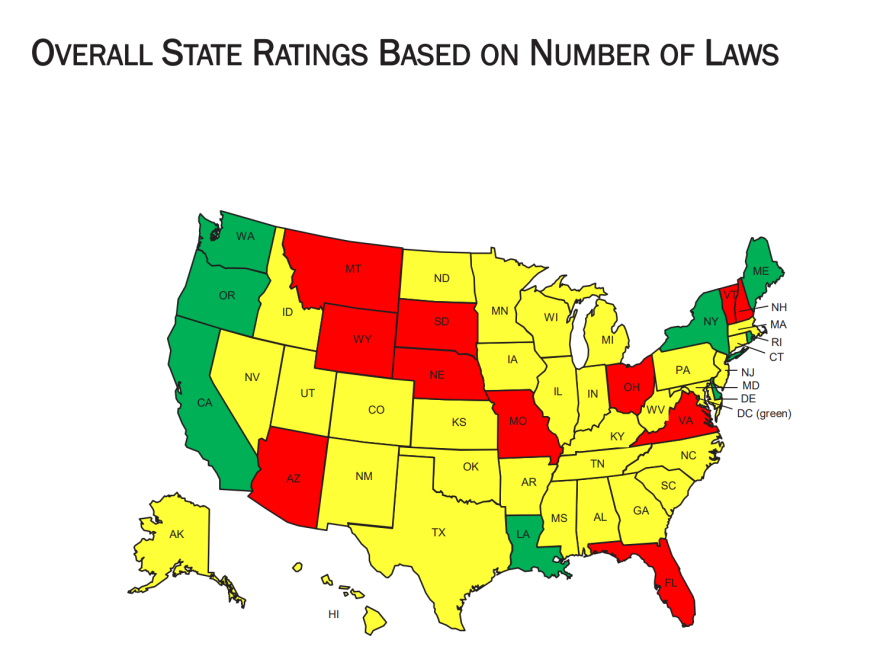Florida gets a “red light” when it comes to its road safety laws, according to a new study.
The group, “Advocates for Highway and Auto Safety,” lists what it calls 16 “optimal” laws for traffic safety, including regulations focusing on seat belts, booster seats, motorcycle helmets, young drivers, and impaired or distracted driving.
Officials say a state is considered in good standing and gets a “green light” if it has enacted 11 of these suggested laws.
Florida’s “red light” rating — with only six of those laws — suggests that the state is falling “dangerously behind.”

One of the laws the state has failed to adopt is a “primary enforcement” rear seat belt law, meaning law enforcement has to pull a driver over for another reason first before ticketing them if someone in a rear seat is not belted in. Currently, the state only requires those seated in the front seat and children to wear seatbelts.
The study reports that in general, adults are 10-15% less likely to wear seat belts when seated in rear seats.
Florida has also failed to enact an “all-ride motorcycle helmet” law. This rule would require all motorcycle riders, passengers or drivers, to wear helmets or face a violation.
The state is missing rear-facing child seat and booster seat laws as well. Currently, Florida only has a law that requires children of the appropriate height and weight to remain in forward-facing harness and tether seats while applicable.
In addition to these recommendations, the advocacy group would like to see stricter laws for new drivers and stricter guidance for drunk driving offenders and distracted drivers.
The organization’s data shows that the annual cost from Florida’s motor vehicle crashes is about $13 billion a year.
The Florida Department of Transportation did not respond to requests for comment in time for publication.
Visit this link for the full study.




